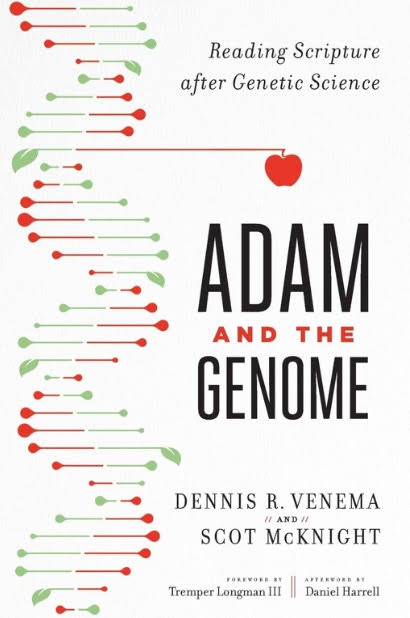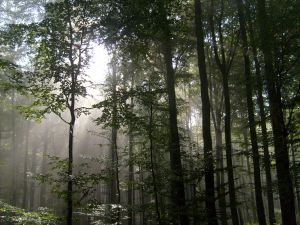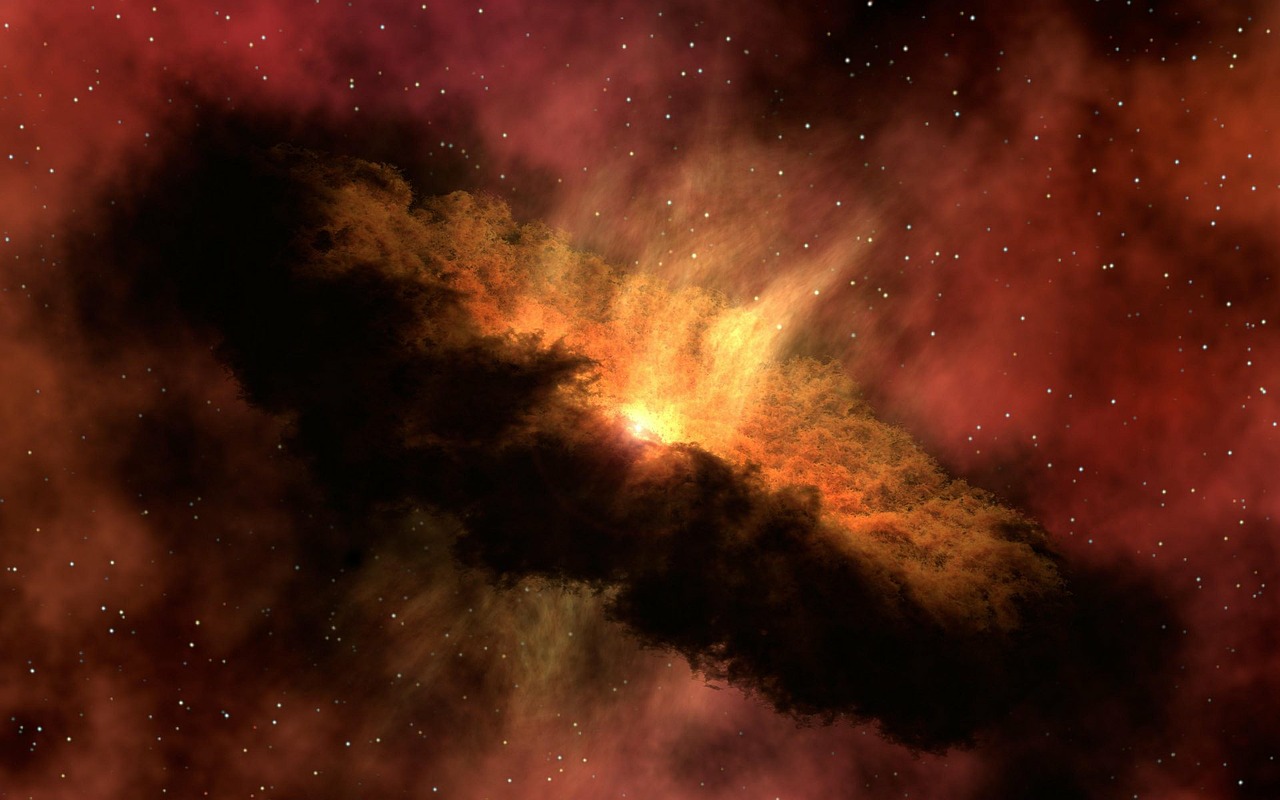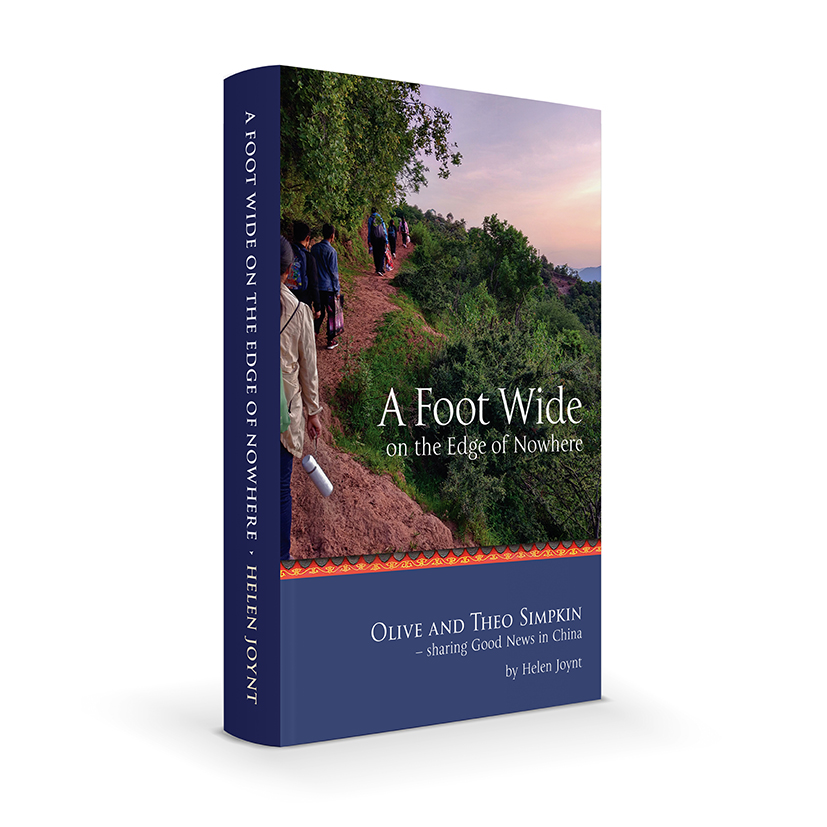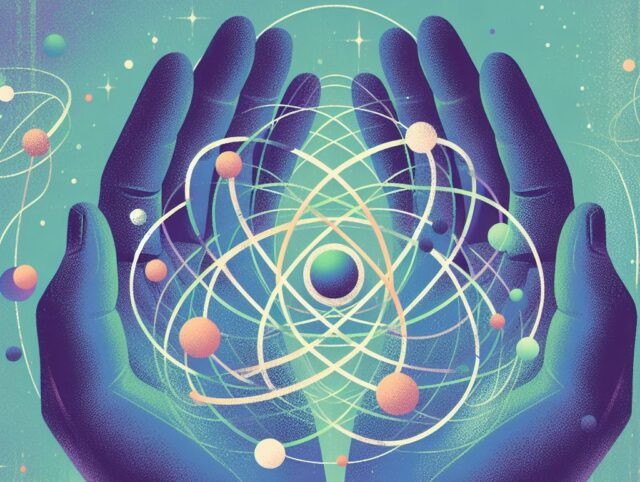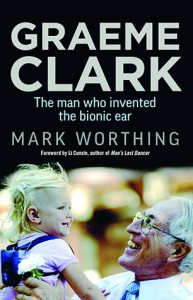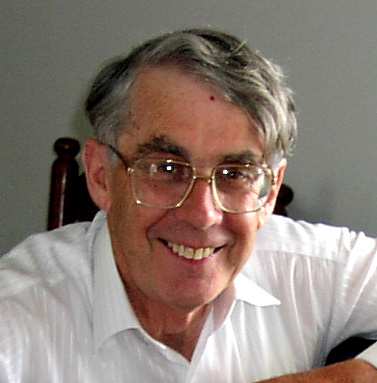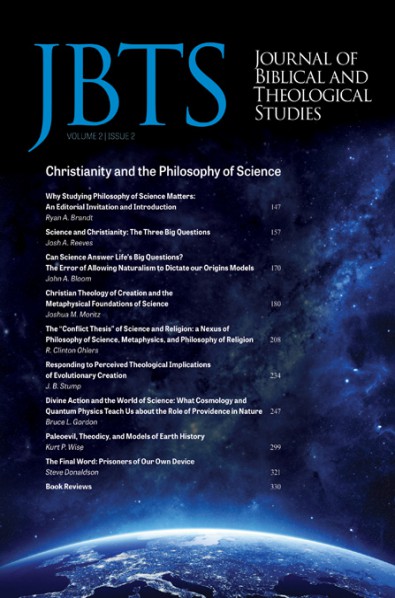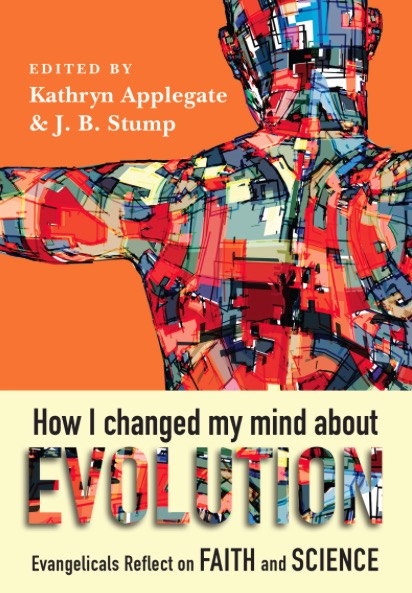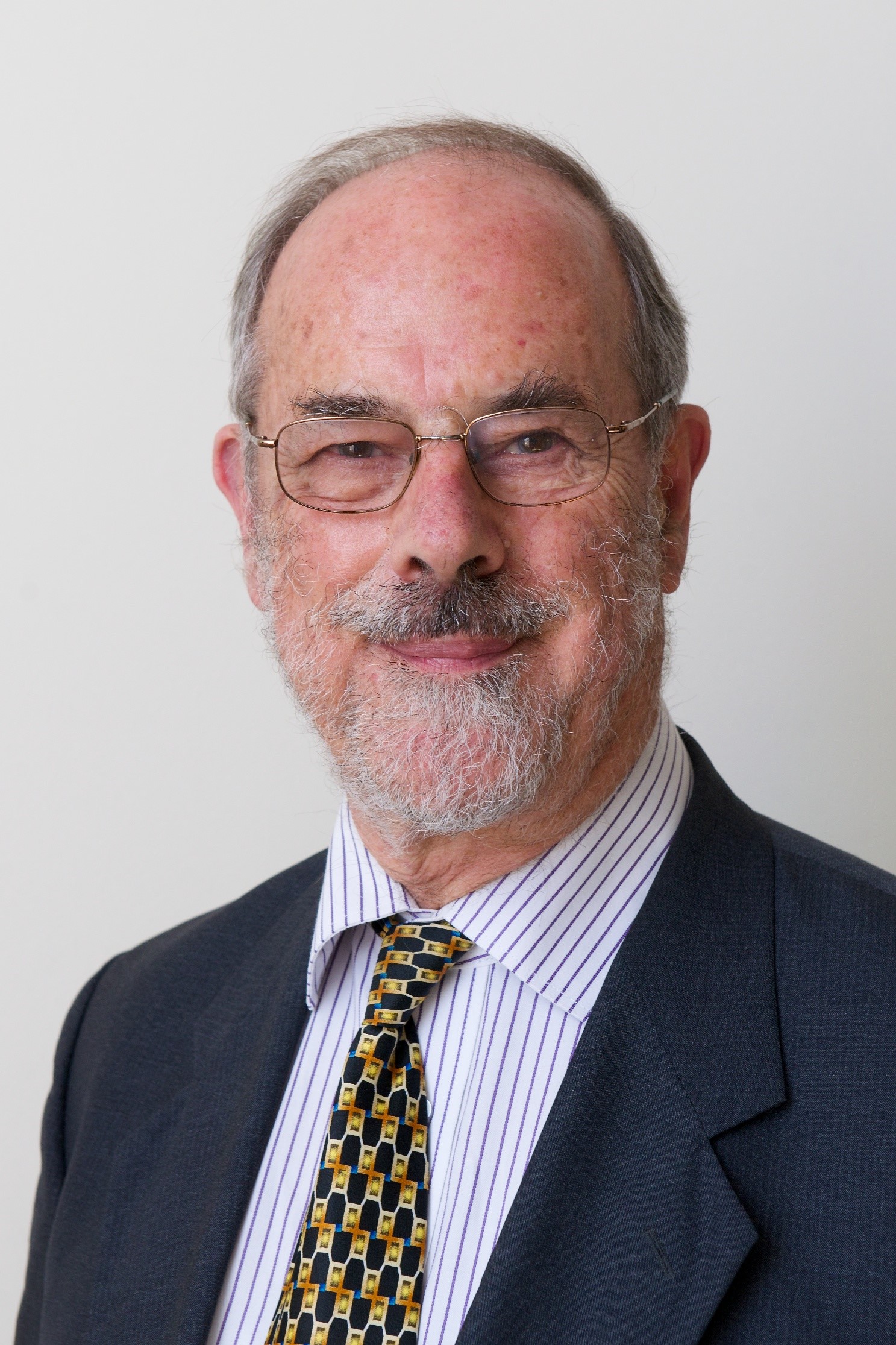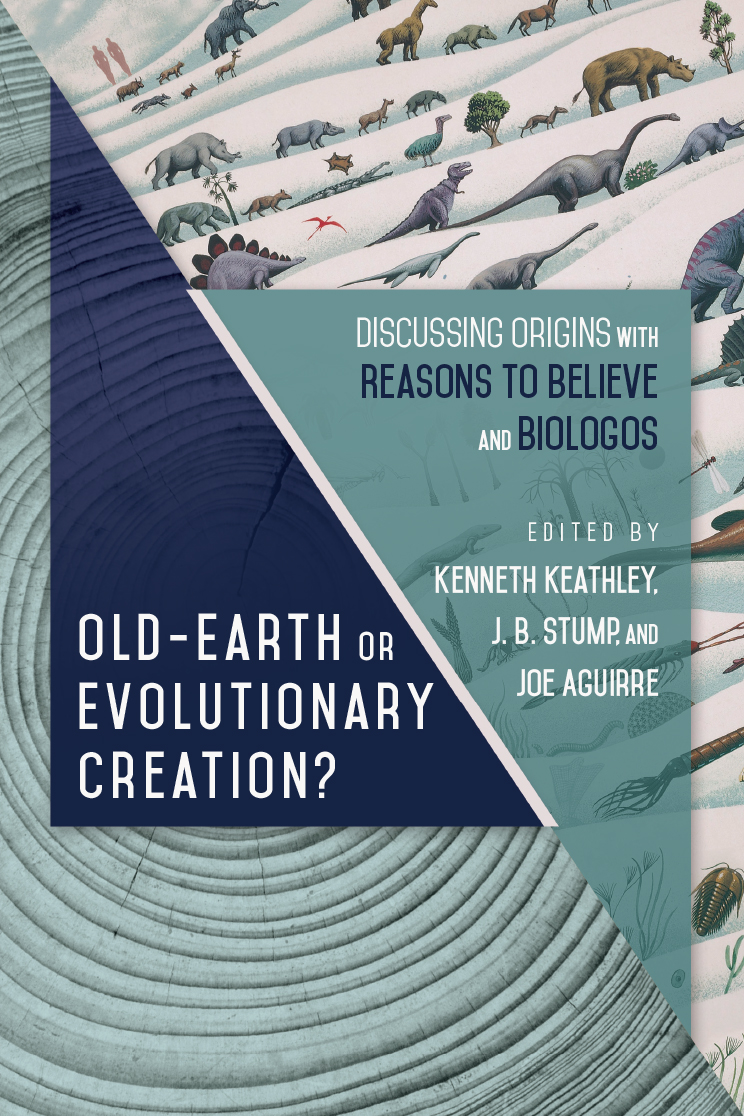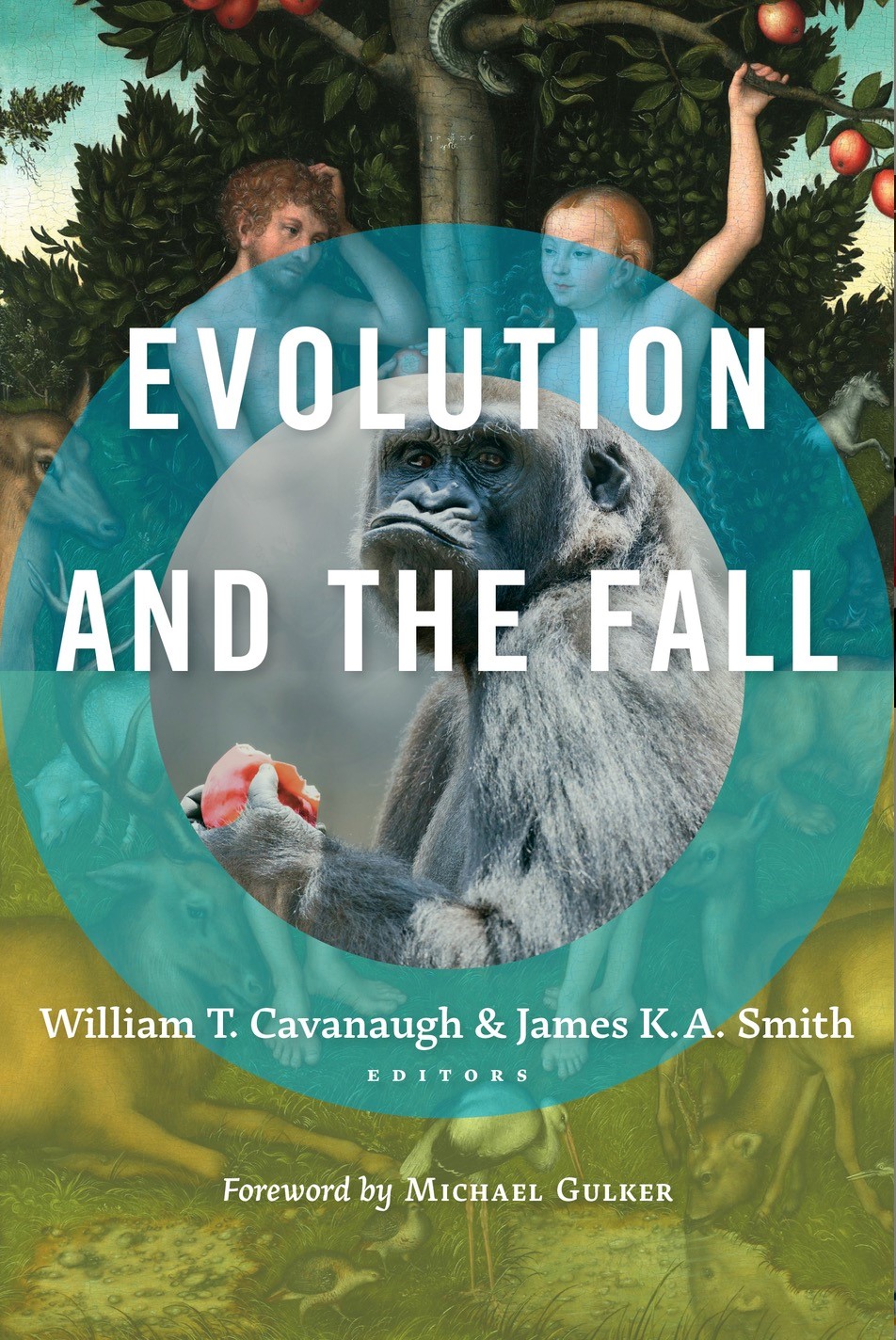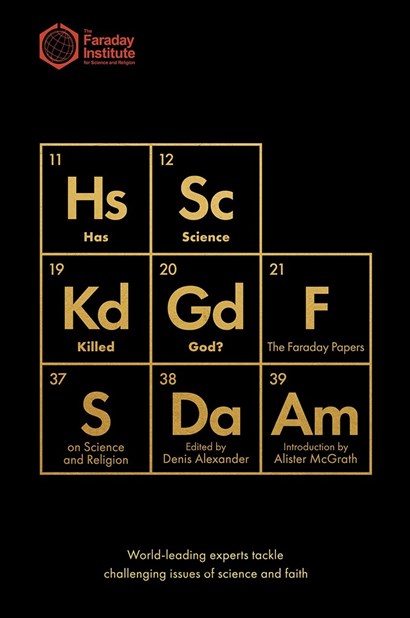


Download PDF
The prophets, the kingdom of God, and global warming
George Emeleus
Dr George Emeleus grew up in Belfast, studied physics at Oxford, and then followed a career in academic physics in Tanzania, PNG, and western Sydney. During the last decade he has completed an MDiv through the United Theological College in North Parramatta, NSW, where he is currently preparing a theology PhD thesis on ‘Divine and human creativity and the blessing and curse of fossil carbon’.
This paper is based on a presentation to the ISCAST Victoria symposium ‘Putting science in its place’, 4-6 July 2014.
Abstract
Biblical narratives of God speaking to people in promise, in judgment and in mercy offer timeless principles which may be used to hear God speaking today. The aim of this paper is to illustrate this principle in the contemporary context of global warming and use of fossil carbon. Christian theology is thus used to interpret a contemporary situation caused by, discerned through, and with some potential to be resolved by science and technology. God’s gift of the Promised Land to Israel, and the history of decline, destruction and exile may be interpreted using the Biblical themes of covenant, gift and promise, blessing and curse, exile and hope. These themes are applied to contemporary dependence on fossil carbon and the threat of global warming. Climate science gives voice to creation, and hence to the Creator, informing prophecy today. Reactions to the science of global warming resonate with how ancient Israel responded to prophets at times of existential threat. The paper continues by contrasting Christian hope with hope for the future based on science, technology and geopolitical change, and concludes by putting science in its place under the shalom of God.
Key words
Fossil carbon, blessing, curse, gift, promise
Introduction:
I begin with two quotes. The first one:
In the past God spoke to our forefathers through the prophets at many times and in various ways, but in these last days he has spoken to us by his Son, whom he has appointed heir of all things, and through whom he made the universe.
Heb. 1:1–2 (NIV)
The second one is from World Bank Group President Jim Hong Kim:
We’re on track for a 4oC warmer world marked by extreme heat- waves, declining global food stocks, loss of ecosystems and biodiversity and life-threatening sea level rise. A 4oC warmer world can, and must be, avoided… Climate change is one of the single biggest challenges facing development and we need to assume the moral responsibility on behalf of future generations, especially the poorest.
World Bank 2012
Both quotes are about communication, making us aware of realities by which to live. For each, the realities are not immediately obvious, rarely pressing in on us in our daily routines. But each urges us to shape our lives wisely with wider, deeper and longer-term horizons in view.
In the first, the writer of Hebrews tells us how God speaks to us, so that we might live in right relationship with God. God spoke to the Israelites through prophets, rebuking corruption and injustice, warning of judgment in face of existential threat, and offering hope even when all seemed to be lost. God now speaks to us through Jesus Christ, the Son, again confronting us in the here and now as to how we live on Earth. But God speaking to us through the Son does far more than the prophets did. In Christ, God draws us into heart-changing familial relationship with our Creator and with our fellow humans, and into loving wisdom towards all creation. How we then live on Earth is shaped by meaning and purpose flowing from the heart of God, and is grounded in faith in the risen Christ.
The second voice comes from the apex of global economic foresight and planning. World Bank economists and planners have heard and heeded the voices of a broad consensus of scientists, who in turn have heard and heeded the voice of our Earth-home. The formality of the words barely conceals urgency, even fear, in face of profound inequality and threat to the very survival of significant parts of humankind. This is the voice of those who see beyond day to day preoccupations, yearly reporting cycles, triennial electoral cycles and typical economic forward planning. What they see is a fraught and dangerous future for generations to come which we can, and must, avoid.
In his book, The great partnership, Jonathan Sacks (2011) passionately makes the case that for a future of hope, we need to hear and heed both voices – the voices of those who use science and reason to analyse what is going on, and the voice of God. So how do we, as theologically aware scientists, or scientifically aware theologians, or less specialized but concerned Christians, do so?
The verses quoted from Hebrews suggest three broad areas of theological and biblical reflection which may speak to us today. By ‘us’ I particularly mean those of us who live in energy-intensive economies, highly dependent on science and technology. By ‘today’ I mean this present time when human activity is shaping the future of life on earth profoundly and on an unprecedented scale.1 These three areas of reflection are:
The Old Testament theme of God relating to the Israelites through covenant, gift, promise, blessing and curse;
How God speaks to us through the Son, Jesus Christ, today, in the immediacy of living witness to the reign (or kingdom) of God on Earth and;
The New Testament understanding that Jesus Christ the Son is at the very heart of the creation and creativity of the Universe, and its meaning, purpose and fulfilment.
Covenant, gift and promise, blessing and curse: prophets interpret the passion of God.
The story of the Israelites is one of covenantal relationship with YHWH, the LORD. The gift of the Promised Land is a blessing if right relationships with God and amongst the people are honoured. But blessing turns to curse when the Giver is not honoured, and the gift is unjustly used for selfish gain, with prosperity for a few and oppression and poverty for many (Deut. 27–30). The prophets clearly saw that such injustice and denial of covenant is deeply offensive to God. Abraham Heschel (1962,
p. 5) describes prophecy as
the voice that God has lent to the silent agony, a voice to the plundered poor, to the profaned riches of the world. It is a form of living, a crossing point of God and man. God is raging in the prophet’s words.
We may see fossil carbon as a gift too, a sort of ‘land of promise’ which has enabled enormous and often beneficial changes over three centuries. It continues to stimulate human creativity in science and to power technology. It is also a major driver of urbanisation, globalisation, and a sevenfold global population increase. The gift of human life is a fundamental Biblical blessing, and many of us would not be alive today without exploitation of fossil carbon. However, fossil carbon remains integral to models of growth which have become ends in themselves. The gift has become part of an idol. God is largely excluded from economics. The bigger picture of living justly and sustainably in God’s created world for generations to come has been lost in preoccupation with short-term aims. Those who will suffer first and most from global warming are those who have least benefited from its primary cause – use of fossil carbon.
They are the poor, particularly in Africa and Asia, some island communities, and all future generations of human and non-human life
1 Future-oriented writers sometimes call this age the Anthropocene. The ‘-cene’ part comes from a Greek word meaning ‘new’, and the ‘Anthropo-’ part from the Greek for ‘human’. What will survive to evolve into the future is being increasingly determined by how humankind lives now.
(Mary Robinson Foundation 2013). There are strong parallels with Judah and Israel under threat of annihilation. Injustice remains rampant, warnings are barely heeded, and there is wholly inadequate change of heart and direction. The voice of the Creator mediated through the creation and heard by many scientists and others may be acknowledged but receives response which often could be described in the words of Isaiah 6:9, 10 – condemnation of looking, listening, but lacking heart- understanding of the gravity of the message. Exile from the world as we currently know it is becoming a fearful possibility. The stark message is that we are on trend to a future none of us would want, with climate- driven changes causing enormous ecological and social consequences. On the human front Rowan Williams (2012, p. 181) captures the gravity of this possibility:
Not the least horror of our present circumstances is the prospect of a world of spiralling inequality and a culture that has learned again to assume what Christianity has struggled to persuade humanity against since its beginning – that most human beings are essentially dispensable, born to die…
Inadequate action on global warming is creating conditions which make this more likely.
Saving the world: the Son, and science and technology.
To save the world from more extreme consequences of global warming, rapid large-scale reductions in use of fossil carbon must take place. Such secular salvation has many resources to draw on. However, the sheer scale of transition and the present enormous material and social investment in fossil carbon make it a daunting task. It is technically feasible, but requires major technological, social and economic change. In absence of clear political will, not least here in Australia, it is inevitably postponed and resisted.2
When we bring Christian faith to this task, we place ourselves within
Jesus’ teaching about living on Earth while belonging to a new era of hope and relationship with God. This is teaching about the kingdom, or reign of God, and about the will of God being done on Earth as in heaven.3 For Christians, this means the risen Christ is Lord, not Caesar, nor growth and prosperity, nor any particular economic and social order. It is about right relationship with God and with God’s good creation – that is other people, non-human life, and the Earth we have been given, in which to live as
those who image God’s love and creativity. Science has a critical role in discerning and addressing environmental issues, and global warming is
2 There are numerous government and independent writings on hoped-for ways forward. See, for example, Flannery (2010).
3 In the Bible, the Kingdom of God (or of Heaven) is closely related to righteousness and peace. These are deeply rooted in Hebrew thought, where righteousness and peace (shalom) go far beyond an individual’s standing before God, to the right relationship of all things to God. See, for example, Woodley (2012) and Brueggemann (2001).
probably the most ubiquitous and threatening environmental issue of our time. For Christians, creativity – including scientific and technological creativity – is a God-given gift to be used within visions of the incoming of God’s reign. Visions of the reign of God provide a frame in which to judge the pursuit of all aspects of science and technology. In the context of global warming that includes every aspect of use, planning, development and investment in energy and resources. It does not give specific answers to issues such as coal seam gas extraction here, the ongoing role of nuclear power there, or economic incentives to develop solar and wind energy. However, it does interrogate these issues in the eternal light of values of the reign of God. It encourages long-term thinking and challenges short-term political expediency and profit. It asks questions about generosity and justice towards others less fortunate. It asks about both the nature and use of our scientific and technological creativity and how it is invested. How much is it directed towards ‘sharing with justice the resources of the Earth’4, now and into the long-term future? How much is directed towards protecting privilege for some, while global warming gradually drives others of God’s creation, both human and non- human, into deepening distress and finally a homeless void?
Christ at the heart of creation and fulfilment, meaning and purpose.
When we bring science and theology together to the great questions of our existence, we bring to science ultimate meaning which lies beyond scientific methodology.5 The scientific story forms a marvellously detailed evidence-based narrative which is nowadays quite coherent all the way from cosmic beginnings to the rise of human reflective consciousness. The impact of human activity on the environment may be read as a deeply ambiguous chapter in that story. Particularly in the last three centuries, extraordinary cultural evolution has been accompanied by environmental changes which are relentlessly making Earth less hospitable for humans and for non-human species alike.
Theology provides what science never can, and that is conviction that the creation is creation in the strong sense of being the work of the Creator, with purpose and meaning which transcend the scientific narrative.
Whether or not that is credible is ultimately a matter of faith, but its reasonableness has been argued by many theologians, scientists and philosophers.6 I have argued, as have many others, that there are likely to be fundamental limits to human understanding and it is credible to believe there is reality which we can only intuit, imagine, and respond to in faith. When we speak of God we are using language beyond its normal roles, reaching out in image and metaphor, with need to take care not to
4 This is part of a prayer found in most Australian Anglican prayer books.
5 This distinction is central to Jonathan Sacks’ work on science and theology (Sacks 2011).
6 Several have spoken at ISCAST events in recent years. See, for example Murphy and Brown (2007), McGrath (1999) and Conway Morris (2008).
be limited by literalism (Emeleus 2012a, 2012b). On limits of language, see, for example, Soskice (2007). Christian faith goes much further.
In biblically informed Christian faith, Christ is the one through whom all things are created (Jn 1:3). Christ sustains all things (Heb. 1:3) and ‘holds all things together’ (Col. 1:17). Christians are called to be followers of Christ in deepest familial relationship with Christ, through whom ‘God reconciles all things to himself … by making peace through the blood of his cross’ (Col. 1:20). ‘All things’ includes our total global environment and all life, human and non-human. Science is put in its proper place
when developed within God’s great purpose of reconciling all things to himself in Christ. So this is the question I believe always has to be asked of science and how it is applied: ‘Is it concordant with bringing in the reign of God, the shalom of God, on Earth?’ The answers may be unclear and ambiguous, and emerge over time, so the question not only needs to be asked; we need to keep on asking it.
Bibliography
Brueggemann, W 2001, Peace: Living toward a vision, Chalice Press, St Louis.
Conway Morris, S (editor) 2008, The deep structure of biology, Templeton, West Conshohocken PA.
Emeleus, G 2012a, ‘Uncertainty in science and belief in God’, Uniting Church Studies, vol.
18(2), pp. 83–90.
Emeleus, G 2012b, ‘The end of certainty: A challenge to aggressive atheism’, Australian Journal of Mission Studies, vol. 6(1), pp. 90–96.
Flannery, T 2010, Here on Earth: An argument for hope, Text Publishing, Melbourne. Heschel, AJ 1962, The Prophets, Harper and Row, New York.
Mary Robinson Foundation, 2013, Hunger.Nutrition.Climate Justice – A new dialogue: Putting people at the heart of global development, viewed 1 December 2014, http://www.mrfcj.org/food-and-nutrition-security/hunger-nutrition-climate-justice- 2013.html.
McGrath, A 1999, Science and Religion: An introduction, Blackwell, Oxford.
Murphy, N, Brown, WS 2007, Did my neurons make me do it?, Oxford University Press, New York.
Sacks, J 2011, The great partnership: God, science and the search for meaning, Hodder and Stoughton, London.
Soskice, JM, 2007, The kindness of God: Metaphor, gender, and religious language, Oxford University Press, Oxford.
Williams, R 2012, Faith in the public square, Bloomsbury, London.
Woodley, RS 2012, Shalom and the community of creation: An indigenous vision, Eerdmans, Grand Rapids.
World Bank, 18 November 2012, Climate change report warns of dramatically warmer world this century, viewed 11 November 2014, http://www.worldbank.org/en/news/feature/2012/11/18/Climate-change-report- warns-dramatically-warmer-world-this-century
